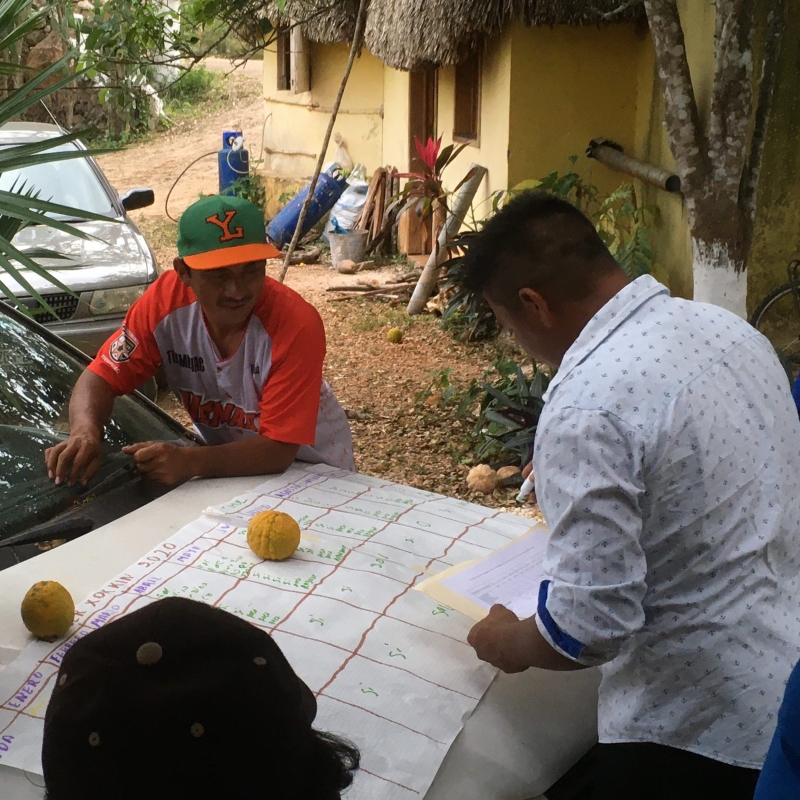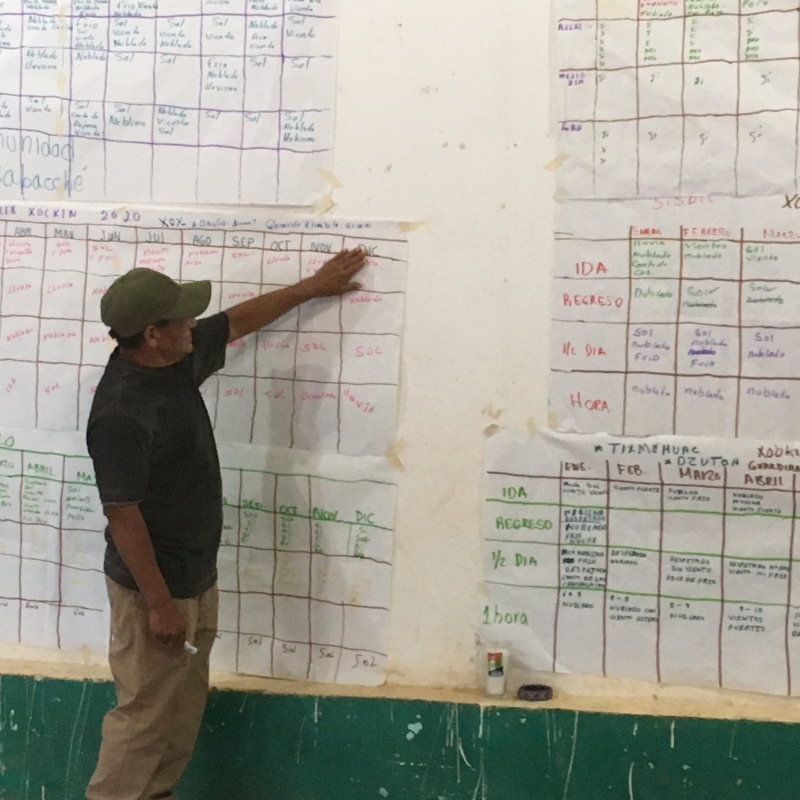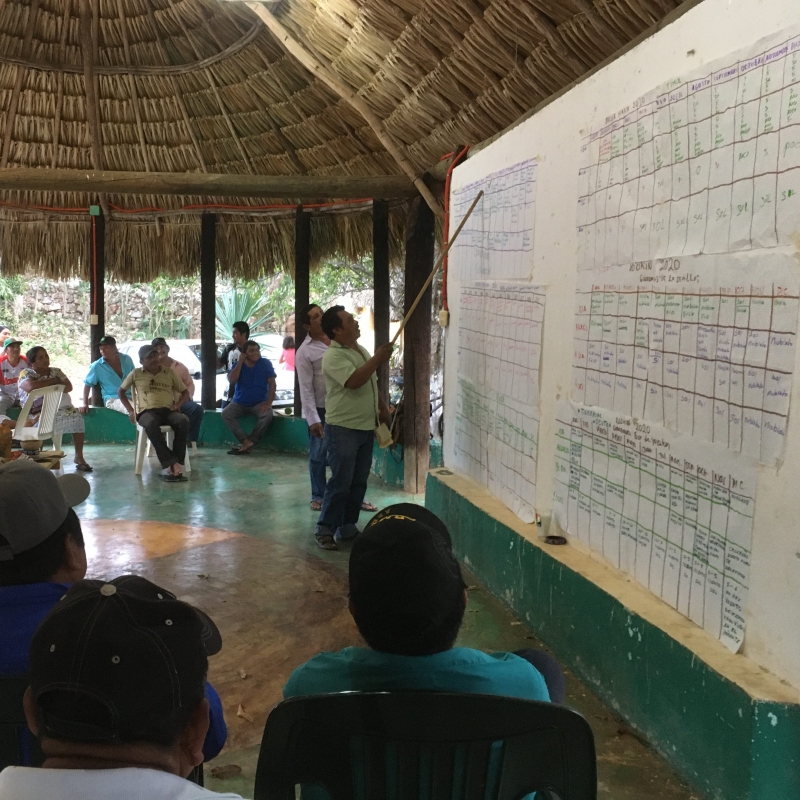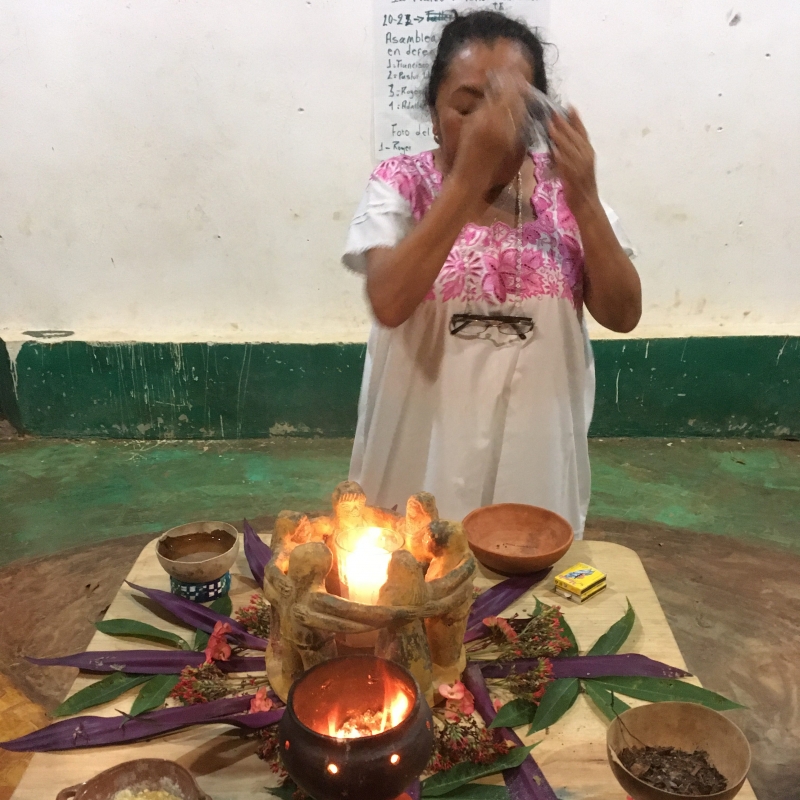Traditional knowledge about the observation of the natural environment is deeply entrenched in the Mayan communities of the Yucatan Peninsula. These ancestral observations inform the decisions of communities in southern Yucatan about the annual agricultural cycle, in a process called Xook K’iin (“the day count”). Throughout January, farmers take note of climate conditions and types of insects and birds, and they observe their behavior; according to parameters passed down through generations, they can decide if it will rain soon, if the season will be abundant, and how long it will last. This allows them to decide how much to sow and what kind of seeds to use.
On February 19th, the 2020 Xook K’iin workshop from the Chacsinkín region took place, where representatives from 6 communities met up to share observations, discussing implications and deciding what will happen in the region during this current agricultural cycle. Men and women participated in the discussion process, filling in an observations grid at their worktables, which was then presented at the plenary session in the Mayan language.
Like many regional meetings, the Xook K’iin workshop ended with a ceremony to thank the ancestors for helping them to produce accurate observations and make good decisions.
The IKI IBA project was invited this year to observe the Xook K’iin as part of a collaboration led by the Guardianes de las Semillas (Guardians of the Seeds) in the south of the Yucatan, an organization dedicated to conserving the cultural and biodiversity values of the Mayan cornfields in the region.




